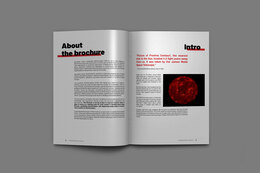Toolbox — For Training and Youth Work
All new tools in your inbox: Be the first to know about new tools for learning with our e-mail notifications.
Manual
Disinformation action brochure
Brochure contains guidelines on how to respond to disinformation targeting minority groups in society. It also provides explanations of the issue of dis/misinformation, the narratives it creates, and methods for verifying information.
Aims of the tool
Its aim is to serve as a starting point for youth workers when addressing topics related to media literacy and combating disinformation. In addition, by presenting disinformation narratives that specifically target minority groups, it can also serve as a tool for raising awareness about the consequences of disinformation.
It is important to note that the brochure is not the result of long-term research, but rather of knowledge exchange among youth workers from eight countries.
Description of the tool
The brochure consists of the following sections:
- Types of information disorder – misinformation, malinformation, and disinformation
- Consequences of inaccurate/false information
- Types of inaccurate/false information
- Most common disinformation narratives targeting minority groups in the countries participating in the project
- Importance of media literacy and key media literacy skills
- Fact-checking and its specific features
- Suggested strategies for responding to disinformation
- Practical resources
- Recommendations
Available downloads:
Disclaimer
SALTO cannot be held responsible for the inappropriate use of these training tools. Always adapt training tools to your aims, context, target group and to your own skills! These tools have been used in a variety of formats and situations. Please notify SALTO should you know about the origin of or copyright on this tool.
Tool overview

http://toolbox.salto-youth.net/5123
This tool is for
Youthworkers, media literacy educators, teachers
and addresses
Social Inclusion
It is recommended for use in:
Training and Networking
Behind the tool
The tool was created by
Unknown.
(If you can claim authorship of this tool, please contact !)
The tool was created in the context of
The project was led by CESI - Centre for Education, Counselling, and Research (Croatia), with partner organizations Building the Balkans (Kosovo), IKAR (Bulgaria), BeFem (Serbia), Chance (Germany), Mediterranean institute of gender studies (Cyprus), Youth
The tool was published to the Toolbox by
Iva Zelić (on 28 September 2025)
and last modified
18 September 2025
Comments
No comments have been posted yet.
If you want to comment on this tool, you need to be signed in with your MySALTO account. Sign in now